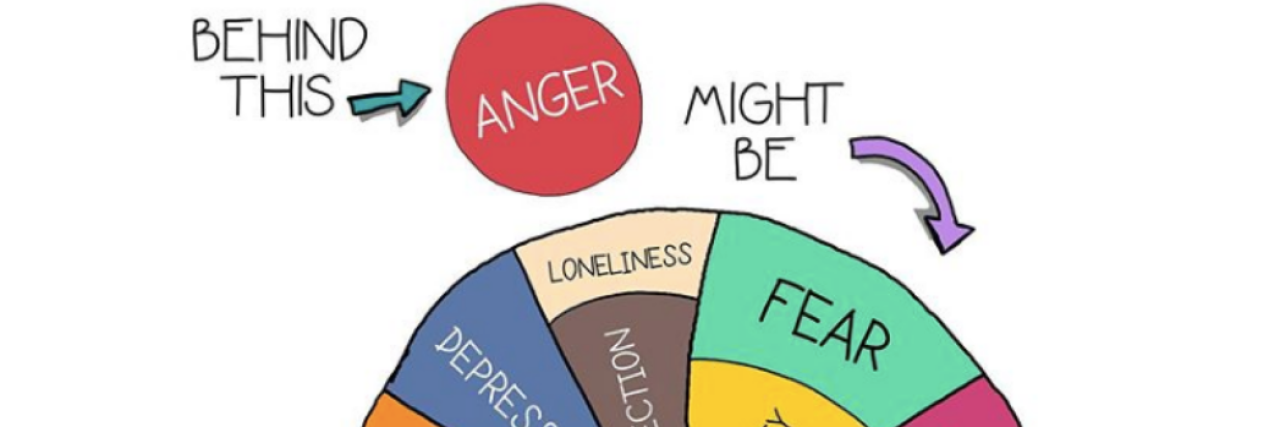It’s often said that “people say things they don’t mean when they’re angry.”
I’m guilty of this, too. And though it’s important to not make excuses for hurtful language we might spew out in a moment of anger, it is true that people often say things they likely would not have said if their emotions weren’t so elevated. I’ve fought with my sister, yelled at my mom and bickered with close friends. I’ve said hurtful things I regret, but who hasn’t?
Yet, I wasn’t only angry in these moments because often, anger is not the primary emotion. Anger often comes secondary to other kinds of hurt, like anxiety, sadness, embarrassment and shame. This concept is shown perfectly in a graphic made by WholeHearted School Counseling, a former school counselor based in New Mexico who makes social emotional learning resources for teachers, students and families.
While it can be easy to get reactive when a loved one (or even yourself) succumbs to anger — it can be helpful to figure out the why. What else may be going on in their life or in their head that is making them speak with anger?
Your child is acting angry, yes, but are they actually frustrated, jealous or overwhelmed?
You can’t stop snapping at your partner, but what else is going on? Are you anxious, depressed or projecting?
I don’t even think of myself as a person who gets angry, except in rare circumstances. I see anger as too extreme, too outward for what I’m feeling. Most of my emotions stay internal, and the other people involved may not even know I am upset. In those moments, I would have described myself as annoyed, bitter and frustrated — and even then, there’s usually a root cause to these more subtle forms of my anger.
When we ask this question — when we take a second to ask, “Why?” and maybe even literally say it out loud — we are placing the focus on the primary emotions rather than the secondary emotion of anger. This gives us a better chance of resolving the conflict. If I’m in an argument with someone, and I say something hurtful, the other person has two choices. They can say something hurtful back, which will escalate the conflict, or they can ask a question. Many people close to me often do this now. They say, “Are you OK?” “You seem upset,” or “What are you feeling right now?”
If this is the first time someone responds to your anger this way, you may initially be caught off guard. I know I was the first few times. But now, most times, the anger breaks down to reveal what’s underneath. The sadness or hurt or overwhelming stress show through; I might cry and speak to what is really upsetting me. And we are able to not only deescalate the situation, but also talk through the real root of the problem. I’m able to apologize before saying something even more hurtful.
I encourage you to experiment with this technique of approaching conflict. Even if you aren’t ready to ask these questions aloud, you can start by just thinking them. The next time someone responds a little too coldly over the phone or cuts you off while driving, ask yourself, “Does that person seem angry because they are feeling stressed or rejected or isolated? What else may be going on in their life? And am I responding with anger because I was already feeling other emotions?”
I think this can help us build our emotional awareness of what those around us are experiencing — and what we’re experiencing ourselves. If anything, it will make the world a more empathetic place.
To see more work from WholeHearted School Counseling, follow them on Instagram.
Image via WholeHearted School Counseling


